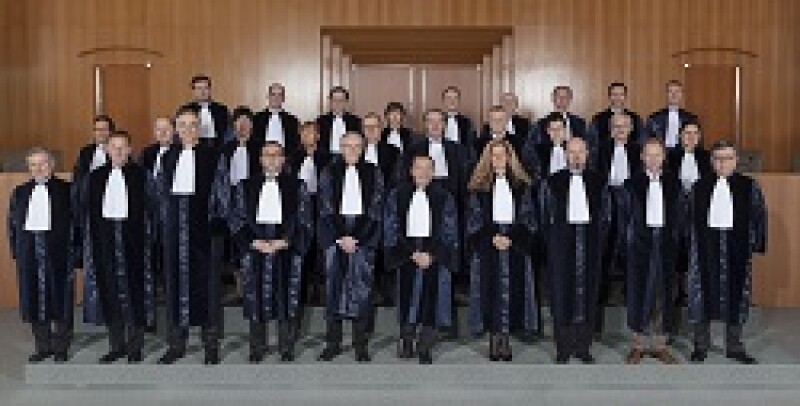The EPO’s latest round of industrial relations problems have been well documented. So have disagreements between the EPO and the European Commission over the Unitary Patent. The spat between member states about what to do with OHIM’s budget surplus resurfaced again this month. Now a row between judges at the Court of Justice and the General Court has broken out over the number of judges that should be appointed at the lower court in Luxembourg.
Last year the Court of Justice submitted a second proposal to increase the number of judges at the General Court, which handles cases from the European institutions, including Community trade mark and Community design appeals from OHIM. Its earlier proposal, back in 2011, was blocked by member states who disagreed over how the new appointments should be divvied up between them.

But now it is clear that judges from the General Court (right) are far from convinced that they need new colleagues.
On Tuesday a group of General Court judges met with key MEPs to outline their opposition to the proposals. In doing so, they exposed the level of tension between the two courts.
In the closed meeting with the rapporteur and shadow rapporteurs from the Legal Affairs Committee of the European Parliament considering the proposal, the judges presented a document in which they claimed “[t]he last thing the General Court needs is the creation of a Mexican army of new judges, supported by a reduced number of qualified personnel” and rejected claims from the Court of Justice that there is a backlog of cases developing in their court.
Judge Irena Pelikánova of the Czech Republic also argued that the Luxembourg court should consider setting up a specialised court for trade marks, models and designs. The Court of Justice rejects this idea, citing difficulties in predicting what kinds of cases comes before the General Court and how they can be resourced flexibly. There is also a reluctance from some member states to contemplate specialised courts for historical reasons.
But on Tuesday Pelikánova told the influential MEPs that a specialised IP trade mark court with specialist IP judges would ensure “greater coherence in the case-law on the subject”. A General Court consisting of 28, or even 56, judges “could never achieve these ends”.
She wrote in her briefing document: “Co-operation with the OHIM might permit the procedure for the review of decisions in the field of trademarks to be simplified (e.g. by doing away with the Boards of Appeal), which would further reduce the cost of the system. The Court of Justice would continue to be able to survey the coherence of the case-law by the right to re-examine decisions of the General Court on appeal and by retaining jurisdiction to hear preliminary rulings in the field of trademarks, designs and models. Judges of the General Court could devote all of their working time to more important cases from an economic and legal standpoint, thereby reducing the length of such proceedings.”
The question of how IP cases are dealt with in Luxembourg surely deserves more discussion – and not just in closed meetings. Do let us know your views.










